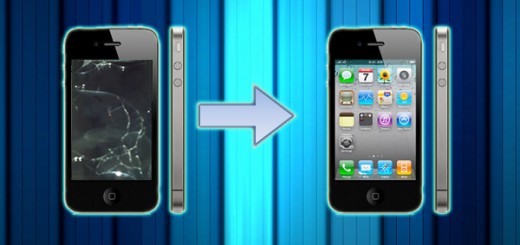RIM may lose important ICE contract, and an order for 17K handsets to Apple iPhone
 The U.S. Immigration and Customs Enforcement agency (ICE) is ending its contract with the Canadian based manufacturer of BlackBerry devices. The results are very bitter for RIM, and a cause for a big smile (grin?) for Apple, because the 17,600 ICE employees will be using the Apple iPhone instead of a BlackBerry device, since it “can no longer meet the mobile technology needs of the agency”, as a representative of ICE stated. The order is worth $2.1 million to Apple.
The U.S. Immigration and Customs Enforcement agency (ICE) is ending its contract with the Canadian based manufacturer of BlackBerry devices. The results are very bitter for RIM, and a cause for a big smile (grin?) for Apple, because the 17,600 ICE employees will be using the Apple iPhone instead of a BlackBerry device, since it “can no longer meet the mobile technology needs of the agency”, as a representative of ICE stated. The order is worth $2.1 million to Apple.
The agency said that after doing some research and analyses, it found that for now, iOS offers the best technology for ICE purposes, because of its tight control over both hardware and software. While Apple has a closed system, Android is an open source OS and Google has very little control over hardware made by OEMs outside of its wholly owned Motorola Mobility.
This is not the first occasion of RIM losing positions to Apple. Recently, Yahoo’s new CEO Marissa Mayer told employees to switch from using a BlackBerry at the office to either a new Apple iPhone or Android model at Yahoo’s expense. Consulting firm Booz Allen Hamilton is switching 25,000 employees from BlackBerry to the Apple iPhone. Ed Snyder, an analyst with Charter Equity Research says that this is going to continue happening.
How did this come to happen for RIM? Companies seem obviously worried that RIM may not be around much longer and are afraid to commit to the Canadians. Before, RIM had an advantage with higher degrees of safety that corporate IT managers wanted. However, Apple’s recent acquisition of AuthenTec and its support for Cisco’s VPN have turned them into a real threat to RIM. “Apple is really addressing security,” Sterne Agee analyst Shaw Wu noted. Well, it’s understandable! In the business world, and not only, confidentiality and security of information is simply vital!
In the first quarter of 2013, RIM is expected to introduce its new BlackBerry 10 models. It has come to the crucial point where the reception to those phones will determine if the company lives or dies.
“They (BlackBerry) still have excellent security … but if your handsets are a brick that no one wants to use it’s going to drag down your business.”-Ed Snyder, analyst, Charter Equity Research.
“Of course, we are disappointed by this decision. We are working hard to make our new mobile computing platform, BlackBerry 10, meets the future needs of government customers.”-Paul Lucier, RIM vice president of government solutions



